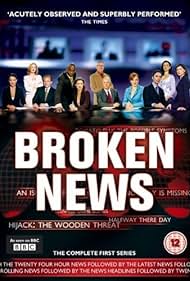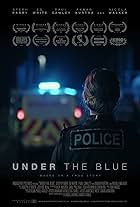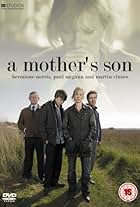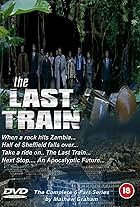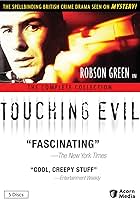Aggiungi una trama nella tua linguaA quirky comedy comprised of numerous humorous news programmes spliced not-so-randomly together.A quirky comedy comprised of numerous humorous news programmes spliced not-so-randomly together.A quirky comedy comprised of numerous humorous news programmes spliced not-so-randomly together.
Sfoglia gli episodi
Foto
Trama
Recensione in evidenza
What some of the people commenting on this series don't seem to understand is that this is not a sketch show.
The fact that none of the characters are particularly memorable, the fact that the news stories are not particularly surreal and the fact that each "channel" starts to feel repetitive even before the end of the episode are all deliberate.
As with "People like us", John Morton is able to avoid focusing on the superficial humour (the "jokes") at the expense of the deep humour (satire).
And that is all there. The bad grammar, the lack of scientific knowledge and basic research of the average journalist, the milking of non-events to fill hours of airtime, the patronising xenophobia of some US networks, the obsession with "live" coverage for the sake of it, the overly dramatic music, the distortion of facts so the reporter can end his story with a "witty" catchphrase or cliché. It's all there.
There are also plenty of jokes and nonsense, but I suspect most of those are just there so you won't mistake the show for a real news network. It's their way of saying "unlike the 'real' news networks, we are still sane enough to realise that this whole thing is ludicrous".
Some of the references will only make sense to people working in the field, but anyone who has spent 10 minutes zapping between different "news" networks will be able to relate.
Be warned, though: there are no pauses to let you laugh and no punchlines telling you when to laugh (a lot of people can't seem to understand humour without the latter). If you laugh, you miss something. In fact, even if you don't laugh, it's hard not to miss something (another obvious reference to the information overload - or "noise" - in modern news broadcasts).
To be watched with a progressively widening mental grin.
The fact that none of the characters are particularly memorable, the fact that the news stories are not particularly surreal and the fact that each "channel" starts to feel repetitive even before the end of the episode are all deliberate.
As with "People like us", John Morton is able to avoid focusing on the superficial humour (the "jokes") at the expense of the deep humour (satire).
And that is all there. The bad grammar, the lack of scientific knowledge and basic research of the average journalist, the milking of non-events to fill hours of airtime, the patronising xenophobia of some US networks, the obsession with "live" coverage for the sake of it, the overly dramatic music, the distortion of facts so the reporter can end his story with a "witty" catchphrase or cliché. It's all there.
There are also plenty of jokes and nonsense, but I suspect most of those are just there so you won't mistake the show for a real news network. It's their way of saying "unlike the 'real' news networks, we are still sane enough to realise that this whole thing is ludicrous".
Some of the references will only make sense to people working in the field, but anyone who has spent 10 minutes zapping between different "news" networks will be able to relate.
Be warned, though: there are no pauses to let you laugh and no punchlines telling you when to laugh (a lot of people can't seem to understand humour without the latter). If you laugh, you miss something. In fact, even if you don't laugh, it's hard not to miss something (another obvious reference to the information overload - or "noise" - in modern news broadcasts).
To be watched with a progressively widening mental grin.
- delnegro-IMDb
- 23 ott 2006
- Permalink
I più visti
Accedi per valutare e creare un elenco di titoli salvati per ottenere consigli personalizzati
Dettagli
- Data di uscita
- Paese di origine
- Lingua
- Celebre anche come
- Megszakítjuk adásunkat...
- Azienda produttrice
- Vedi altri crediti dell’azienda su IMDbPro
Contribuisci a questa pagina
Suggerisci una modifica o aggiungi i contenuti mancanti

Divario superiore
By what name was Broken News (2005) officially released in Canada in English?
Rispondi